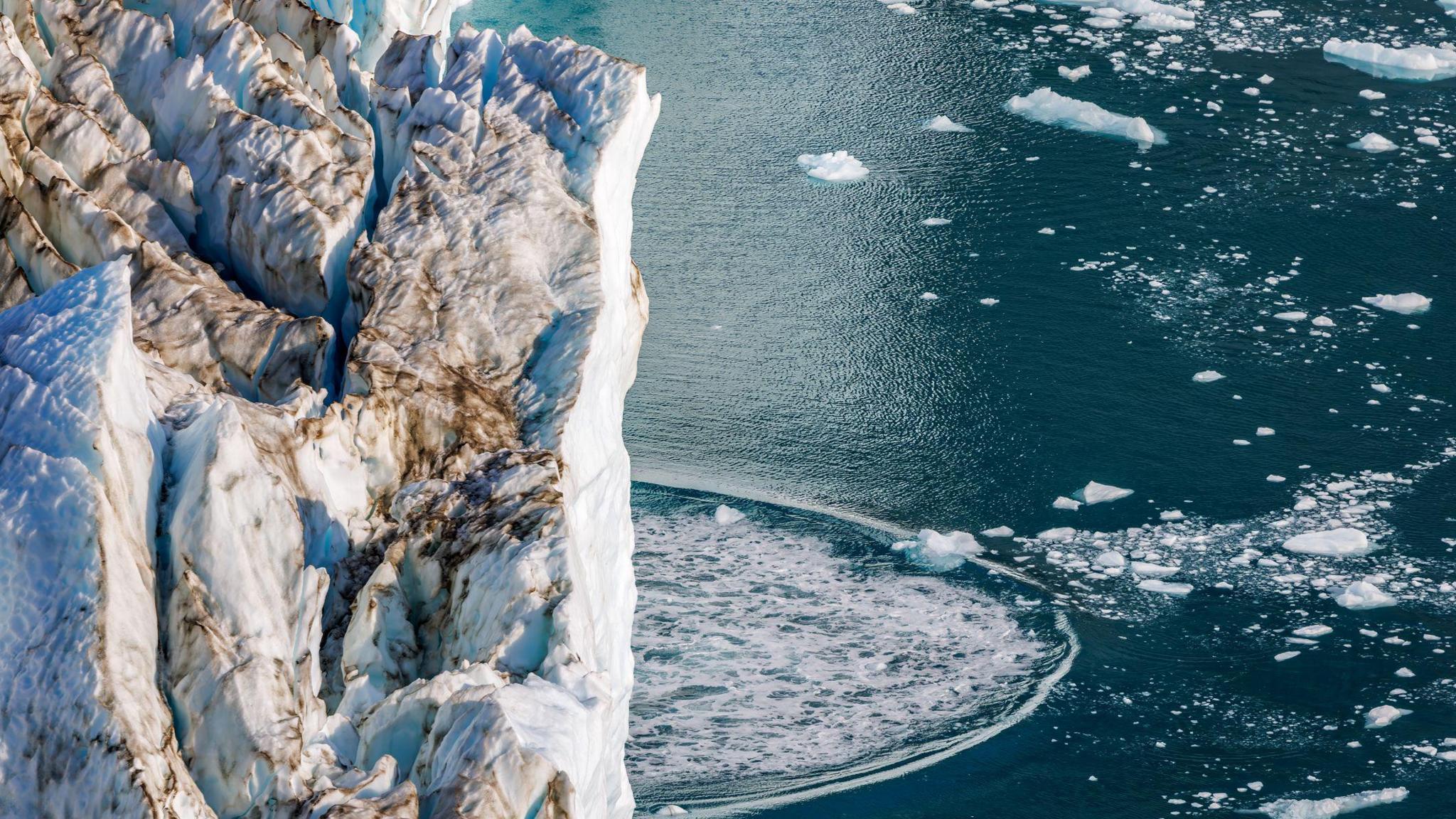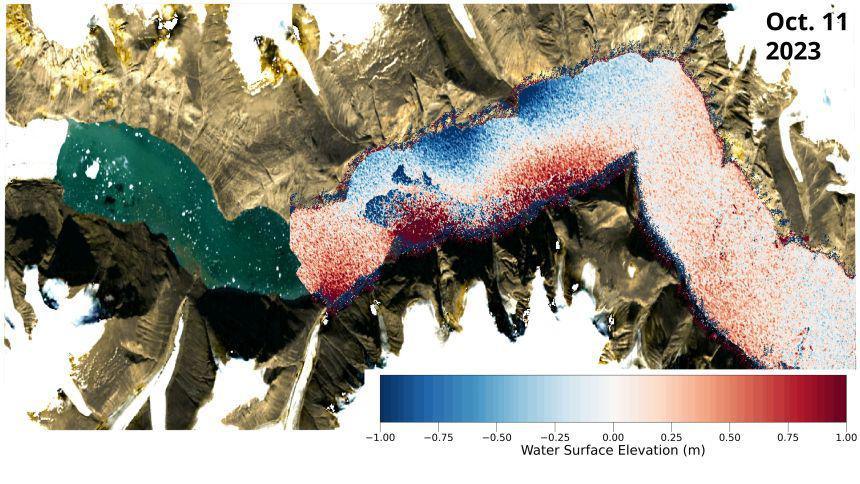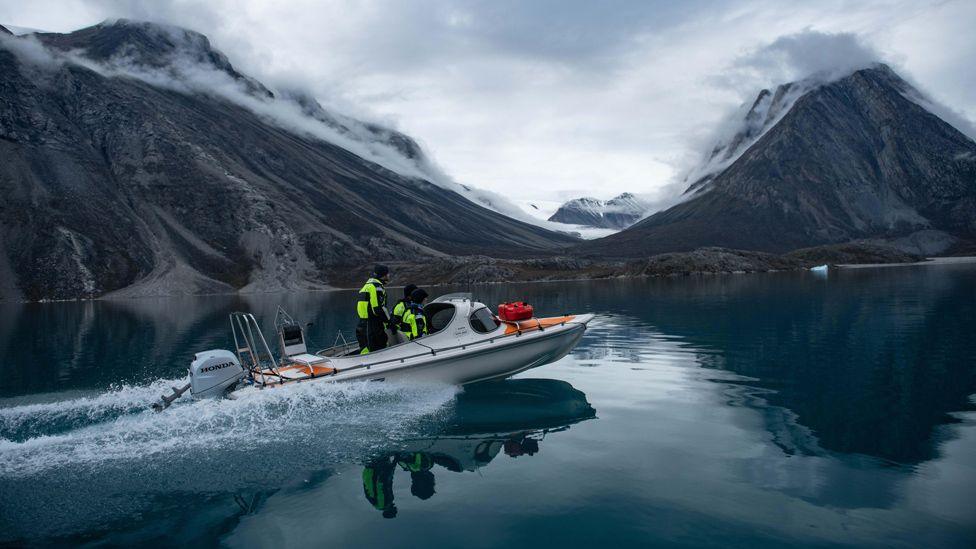'Extraordinary' tremors caused by tsunamis - study

The tsunamis became trapped in the Dickson Fjord, in Greenland
- Published
A series of "extraordinary" tremors observed across the globe were caused by two tsunamis stranded within a fjord in Greenland, a new study has confirmed.
During September and October 2023, the "bizarre" seismic activity was observed every 90 seconds over intermittent periods each month.
New University of Oxford-led research confirmed it was caused by two mega tsunamis, which occurred after the warming of a glacier led to two major landslides.
The tsunamis became trapped standing waves that surged back and forth within the remote Dickson fjord in eastern Greenland, causing the tremors, the study found.
The research's lead author Thomas Monahan, from the University of Oxford, said: "Climate change is giving rise to new, unseen extremes.
"These extremes are changing the fastest in remote areas, such as the Arctic, where our ability to measure them using physical sensors is limited."

Satellite data showed the undulations of the tsunamis within the fjord
To conduct the study into what researchers called the "extraordinary" tremors , scientists used new techniques to interpret data recorded by satellites orbiting the globe.
This altimetry data measures the height of the Earth's surface by recording how long it takes for a radar pulse to travel from a satellite to the surface and back again.
Conventional altimeters were unable to record evidence of the Greenland tsunamis, but a satellite launched in December 2022 had the equipment capable of doing so - allowing researchers to observe the trapped waves.
"This study shows how we can leverage the next generation of satellite earth observation technologies to study these processes," Mr Monahan said.
Co-author of the study Prof Thomas Adcock added: "This study is an example of how the next generation of satellite data can resolve phenomena that has remained a mystery in the past.
"We will be able to get new insights into ocean extremes such as tsunamis, storm surges, and freak waves."
Get in touch
Do you have a story BBC Oxfordshire should cover?
You can follow BBC Oxfordshire on Facebook, external, X (Twitter), external, or Instagram, external.
- Published12 September 2024
